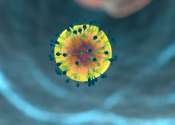Taking the vital signs of the global ocean with biogeochemical floats
As the researchers and crew aboard the research vessel Thomas G. Thompson continue to deploy biogeochemical floats in the western North Atlantic, the arrival of the first profile data marks an exciting step forward for the ...









